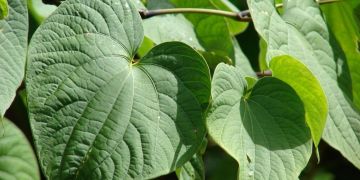Anxiety and Insomnia
Kava is well known for its ability to reduce symptoms of anxiety and stress. In a 6-week, double-blind trial with 75 participants, kava was found to significantly reduce anxiety. Furthermore, Bartram’s Encyclopedia of Herbal Medicine describes kava as a “powerful soporific for chronic insomnia” due to its calming effect. Kava may be used as alternative to anxiety medication, but should not be used in conjunction with any other drugs. Kava also eases other stress-induced symptoms such as muscle cramps and strains. Uterine cramps and backaches associated with a woman’s menstruation may also become more tolerable by using kava.
Menopause
Kava has been shown to lessen some of the menopause-related symptoms in women including anxiety, moodiness, and even hot flashes. In a 2007 study of supplements for mood and anxiety in menopausal women, it concluded that kava “holds promise for decreasing anxiety in peri- and postmenopausal women”. However, it was noted that kava should not be taken long-term and should be used with caution.
Topical anesthetic
People who consume raw kava root report a sensation of tingling or numbness on their lips and tongue. These harmless sensations caused by the kavalactones in the root can act as a topical anesthetic on minor superficial wounds and abrasions. It may also help relieve the pain of a toothache or sore throat.
Consumption
People of the Pacific Islands are often described as some of the happiest and most social folks on the planet; perhaps this has something to do with the kava root these people consume on a regular basis. Once harvested, the root of the kava plant is chewed directly or ground into a powder, mixed with a small amount of water or coconut milk, and quickly consumed. Macerating the root releases the kavalactones that produce feelings of well-being, relaxation, and mental clarity. People who wish to consume kava sometimes take it like the Islanders do by chewing it or mixing the powder with drink. Other ways kava can be taken is in the form of capsules, tinctures, pastes, and teas. There are even foods made with kava root such as chocolates, snack chips, and smoothies.
Liver health and associated risks
There have been some concerns about the safety of kava root, particularly its role in causing liver toxicity. Some people who have consumed kava developed liver damage but the reason is unclear. What seems to be generally agreed upon is that if one is to consume kava, the person should ensure it is a standardized preparation made only from the kava root, and not to ingest high quantities over a long period of time.
Because of the mild euphoric feeling that kava can induce, it is sometimes considered to be potentially addictive. No studies have confirmed this theory, however, in spite of the fact that kava affects the body and mind in ways similar to how anti-anxiety drugs like benzodiazepines do.
Recommended dosages for kava root vary widely. Most of the commercially prepared kava root supplements have 30 to 70mg of kavalactones per serving. Since it is the kavalactones that provide the therapeutic benefits of the plant, users of kava should ensure that the product they choose is dosed based on kavalactone content, not just the total kava root itself. Always consult your doctor before consuming any herbal supplement or new medication.





